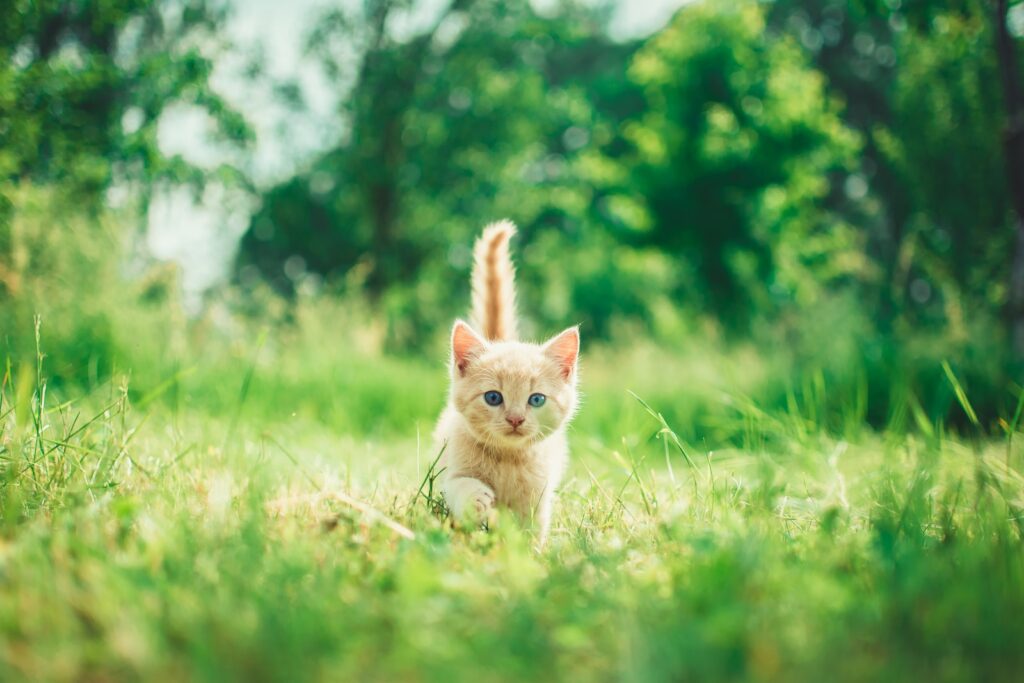Can Cats Eat Gravy? — No, They can’t
Gravy, although delicious and tempting for us humans, is not suitable for our feline friends. Cats should not consume gravy as a regular part of their diet. While it may seem harmless and even enjoyable, there are several reasons why cats should avoid consuming gravy.
Can Kittens Eat Gravy?
No, kittens should not be given gravy to eat. Kittens have more delicate digestive systems compared to adult cats, and introducing gravy into their diet can lead to digestive issues and upset stomachs.
Things to consider when feeding gravy to kittens?
It is best to avoid feeding gravy to kittens altogether. Instead, focus on providing them with a balanced diet that consists of high-quality kitten food specially formulated to meet their nutritional needs.
Nutritional Benefits of Gravy for Cats — Why Gravy is/are not good for Cats?
No Key Nutritional Benefits
Gravy does not offer any significant nutritional benefits for cats. While it may enhance the taste of their food, it is essentially a high-sodium, high-fat, and low-nutrient addition. Cats require a balanced diet that consists of high-quality protein, essential fatty acids, vitamins, and minerals, which are not present in gravy.
Potential Allergies: Can Cats Be Allergic to Gravy?
Cats can develop allergies to certain ingredients commonly found in gravy, such as wheat, soy, or artificial preservatives. If your cat has previously experienced allergic reactions to other foods or ingredients, it is best to avoid introducing gravy into their diet.
Symptoms of Gravy Allergies in Cats
- Vomiting and diarrhea: If your cat develops an allergy to gravy, they may experience digestive upset, which can manifest as vomiting or diarrhea.
- Skin irritations and itching: Allergy-related skin irritations, such as excessive itching, redness, or rashes, can occur in cats with gravy allergies.
- Respiratory issues: In some cases, cats may develop respiratory symptoms, such as wheezing or coughing, as a result of gravy allergies.
What to Do If Your Cat Shows Symptoms?
- Consult your veterinarian: If your cat exhibits any of the above symptoms after consuming gravy, it is crucial to seek veterinary advice. Your veterinarian can provide a proper diagnosis and recommend suitable treatment options.
- Eliminate gravy from their diet: If your cat is allergic to gravy, the best course of action is to completely remove it from their diet and opt for alternative, allergy-friendly food options.
- Monitor their condition: Keep a close eye on your cat’s symptoms and report any changes or worsening to your veterinarian.
Recommended Amount: How Much Gravy Can a Cat Consume?
As gravy does not hold significant nutritional value for cats, it is recommended to avoid feeding it to them altogether. Instead, focus on providing them with a balanced and species-appropriate diet that fulfills their nutritional needs.
Things to Consider When Feeding Gravy to Cats
When considering feeding gravy to cats, it is essential to keep in mind the potential risks associated with its consumption. Gravy is often high in sodium and fat, which can be detrimental to a cat’s health if consumed regularly or in excessive amounts. Additionally, some cats may develop gastrointestinal upset or allergies from gravy, further highlighting the importance of avoiding it as a part of their diet.
How to Feed Gravy to Cats: A Quick Guide
While it is advisable to refrain from feeding gravy to cats, if you still wish to incorporate it into their meals, here’s a quick guide:
Gravy and Canned Food Mix
If you prefer to enhance the flavor of your cat’s canned food with gravy, you can mix a small amount of gravy into their meal. However, it is important to ensure the gravy is low in sodium, fat, and does not contain any potential allergens.
Homemade Gravy Alternatives
If you want to provide a gravy-like consistency to your cat’s meals, consider preparing homemade alternatives using cat-friendly ingredients. Some options include bone broth diluted with water or a small amount of wet cat food mixed with water to achieve a gravy-like texture.
Conclusion
Although gravy may seem like a tasty addition to a cat’s diet, it is best to avoid feeding it to them. Gravy lacks significant nutritional benefits and can potentially lead to digestive issues, allergies, and other health problems. Instead, focus on providing cats with a balanced and species-appropriate diet that meets their specific nutritional requirements.






